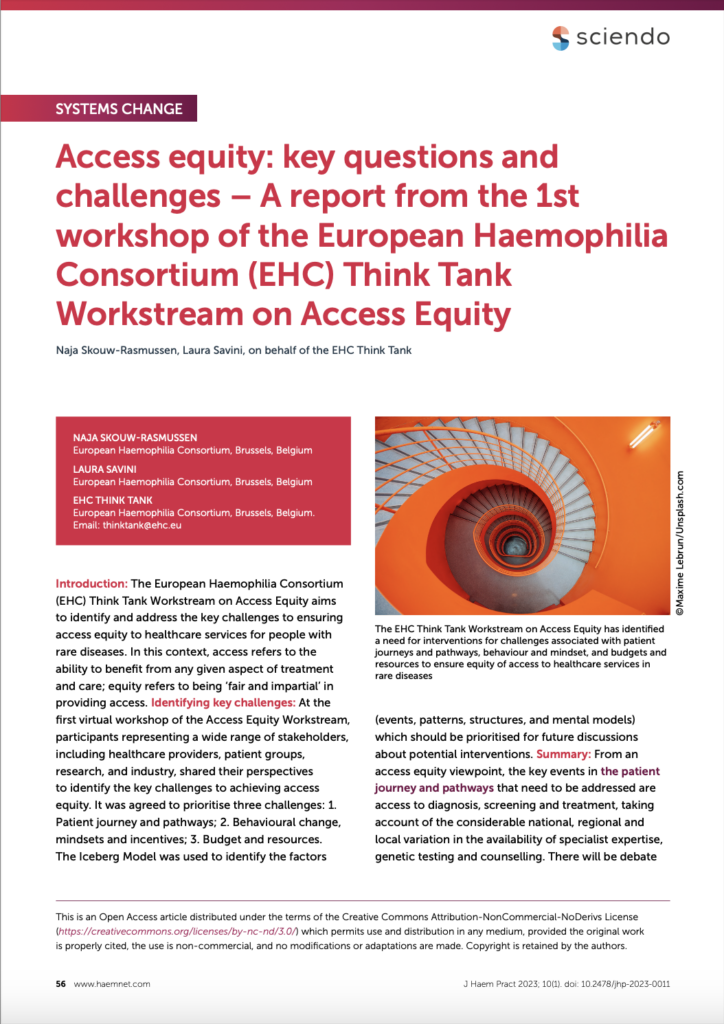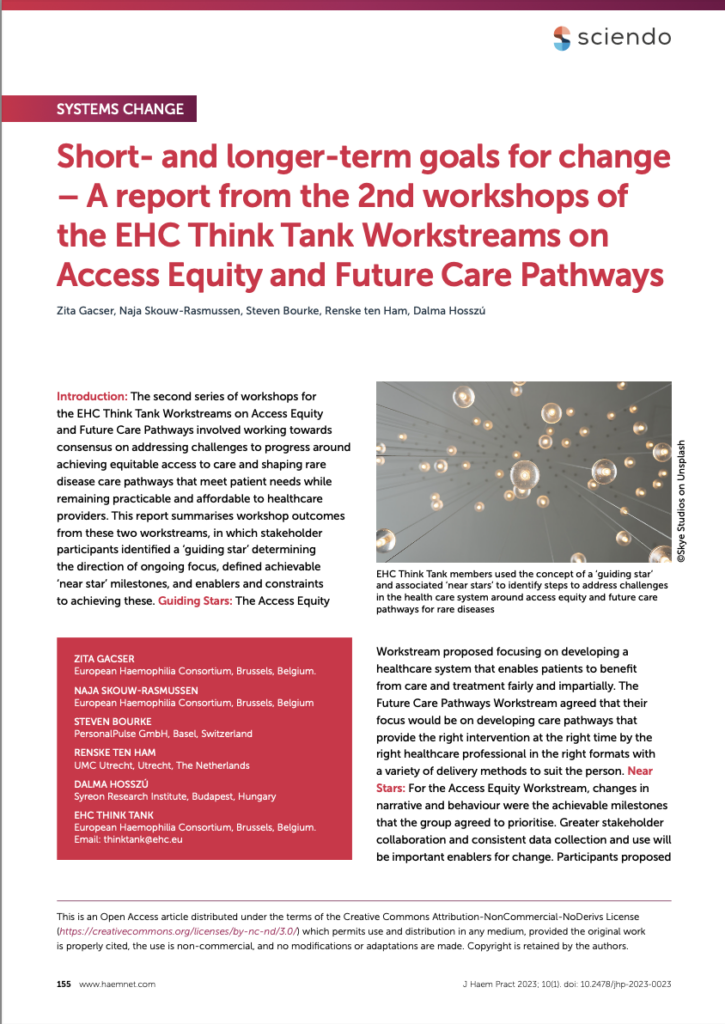The Access Equity workstream aims to explore health economics, from the evidence base to payment and distribution models, getting patient organisations more centrally and formally involved in the entire process, and considering the behavioural science that can be applied to achieve all of the above.
About the workstream
The Access Equity workstream is set up to address the lack of access to treatment and care, and equity within that access, across patient populations as well as within local, regional and national boundaries. This workstream aims to consider not just pricing but also health literacy, the impact of patients’ socio-economic status, and the roles and responsibilities of different stakeholders, especially on how to work with evidence generation and its validity for a complex network of different decision-makers and decision-making processes.
In the Access Equity workstream, ‘access’ refers to the ability to benefit from a thing1, either financial, physical, etc., while ‘equity’ refers to the quality of being fair and impartial2 across and within countries as well as on community and individual levels.
This workstream aims to explore, amongst others:
- Health economics, from the evidence base to payment and distribution models,
- Getting patient organisations more centrally and formally involved in the entire process, and
- The behavioural science to achieve the above.
Composition
The composition of the workstream aims to reflect the diversity of key actors who have hands-on knowledge of challenges and possible solutions in this thematic area. This includes, but is not limited to: patients, healthcare professionals, industry partners, private companies, policymakers, researchers, and academics.
The general membership profile is built around required skill sets and may evolve throughout the co-creation process. The initial skill sets include the ability to ‘problem map’ salient points and their relationships, requiring:
- Hands-on knowledge of the topic area,
- Genuine willingness to learn about, and actively contribute to, a systems change culture,
- Experienced, analytical, open, hands-on ability to remove stakeholder ‘hats’, and
- Respect of Chatham House Rule and culture of conduct and engagement.
Each workstream brings together 16-20 individuals, which is broad enough to ensure a comprehensive overview, while small enough to be workable.
Public outcome
- As part of sharing the outcome of the work of the EHC Think Tank, the first paper from the workstream on access equity in which workstream members identify three challenges to be prioritised for future discussions about potential interventions is now published. Participants shared their perspectives to identify the following key challenges to achieving access equity: 1. Patient journey and pathways; 2. Behavioural change, mindsets and incentives; 3. Budget and resources. Skouw-Rasmussen, Naja. “Access equity: key questions and challenges – A report from the 1st workshop of the European Haemophilia Consortium (EHC) Think Tank Workstream on Access Equity” The Journal of Haemophilia Practice, vol.10, no.1, 2023, pp.56-61. https://sciendo.com/article/10.2478/jhp-2023-0011
- At the second series of workshops for the EHC Think Tank Workstreams on Access Equity and Future Care Pathways, stakeholder participants worked towards consensus on addressing challenges to progress in areas identified in the first series of workshops. Each workshop identified a ‘guiding star’ determining the direction of ongoing focus, defined achievable ‘near star’ milestones, and explored the enablers and ‘constraints’ to achieving these. Gacser Z, Skouw-Rasmussen N, Bourke S, ten Ham R, Hosszú D; EHC Think Tank. Short- and longer-term goals for change – A report from the 2nd workshops of the EHC Think Tank Workstreams on Access Equity and Future Care Pathways. J Haem Pract 2023; 10(1): 155-163. https://sciendo.com/article/10.2478/jhp-2023-0023
System map of the underlying challenges
A system map is a methodology to better understand a particular issue by visualising the challenges, related constraints, and enablers. The system map aims to give an overview of the issue at hand while balancing the detail level.
The map is built from the participants’ discussions and vetted by participants throughout its development. The key challenges identified are:
- Change of narrative
- Change of behaviour
It is important to remember that the system map illustrates the situation here and now and does not include ideas and wishes for the future. Thus, it is dynamic and should look different in the future as initiatives evolve, resource flows change, opportunities arise, or new challenges occur.
The map is interactive and gives you an opportunity to zoom in on particular circles and connections and zoom out to see the bigger picture of connections. To open it in a separate window, click this link.
If you would like to learn more about the work of this workstream, please get in touch with us.
1) Nancy Lee Peluso & Jesse Ribot (2020) Postscript: A Theory of Access Revisited, Society & Natural Resources, 33:2, 300-306, DOI: 10.1080/08941920.2019.1709929
2) Clark, J. (2019) How to Balance Equity, Equality, and Fairness, https://www.cui.edu/academicprograms/education/servant-leadership-institute/perfecting-the-practice/blog/post/how-to-balance-equity-equality-and-fairness


